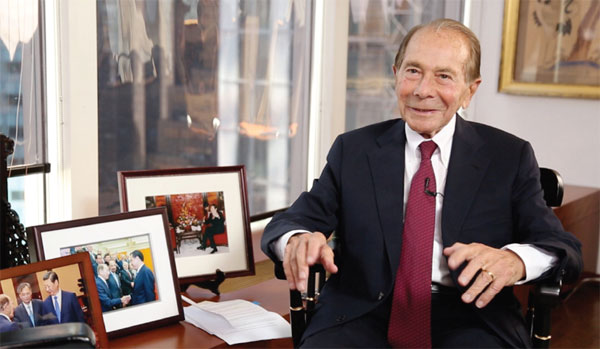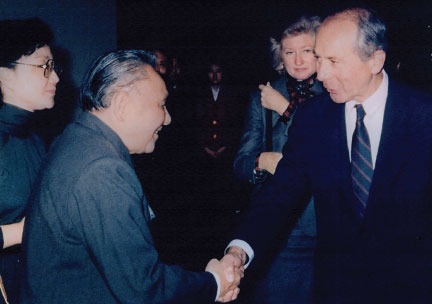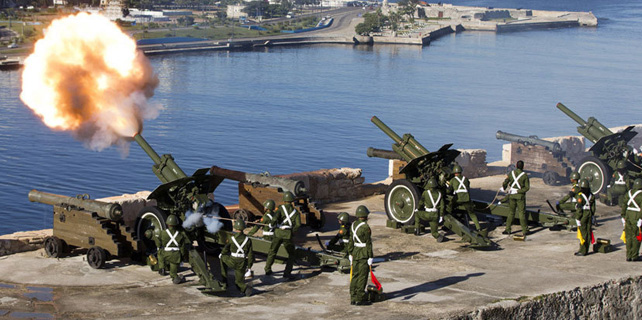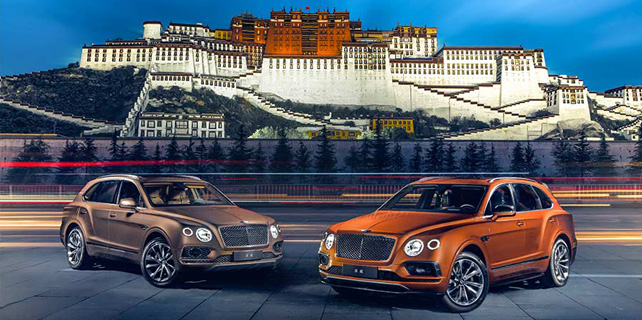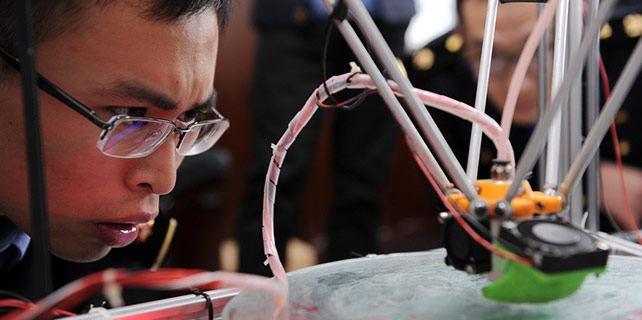Hank Greenberg:time is right for giving
A longtime friend of China, the insurance magnate says the country's wealthy should get into the philanthropy game
Forty-one years later, Maurice R. "Hank" Greenberg still clearly remembers his first trip to China.
The visit in November 1975 nurtured a partnership between his company and the People's Insurance Company of China (PICC) in Beijing, which then, as Greenberg recalled, was "a small building near Tian'anmen Square".
"On the trip we agreed to reinsure each other," the chairman and CEO of Starr Companies said at his New York office in a recent interview. "We began a reinsurance business then. Even though it was tiny, the significance was that we started something."
During the trip, Greenberg, his wife Corinne and his two colleagues visited the Great Wall, the old city of Beijing, and Shanghai.
"There were bicycles. People were very curious about Americans. It was a good experience," he said.
Looking back, it seems only natural for Greenberg to write to PICC and request such a meeting.
In December 1919, Cornelius Vander Starr started a small insurance agency with connections to a local bank in Shanghai. That agency moved from Shanghai to New York during World War II.
Greenberg joined Starr as vice-president in 1960, consolidated a number of insurers into the company, formed the franchise into American International Group (AIG), and took it public in 1969.
|
Maurice R. Greenberg, who has been an active philanthropist in China, said giving back to society has been part of American societal fabric in an interview organized by the Chinese Cultural Foundation. |
Under his leadership, AIG's market value increased from approximately $300 million in 1969 to over $180 billion in 2004, making it the largest insurance and financial services company in the world. Starr Companies will mark its 100th anniversary in China in two and a half years.
"With around 500 million people - which I believe was the population 41 years ago - you couldn't keep a country as large as China out of the world trading system. You couldn't keep it isolated. It wouldn't make any sense," Greenberg said.
"We already did business with Asia, Latin America and Europe. China was a big part of the map."
The relationship grew from there. Since 1975, Greenberg has traveled to China every year. In the late 1980s, he met premier Zhu Rongji, then mayor of Shanghai. Greenberg worked with Zhu and led the effort to establish the International Business Leaders Advisory Council for the mayor of Shanghai (IBLAC), now one of the most prestigious organizations of its kind in the world.
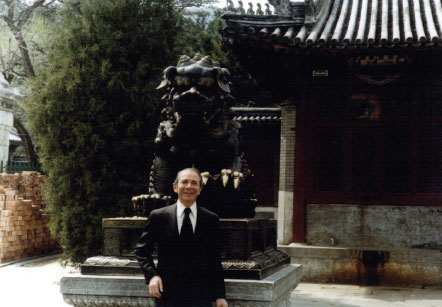
|
Greenberg in front of a statue in Beijing in 1978. Greenberg meets former Chinese leader Deng Xiaoping in China. photos by starr foundation |
The first
In 1992, Greenberg's company received a wholly owned life insurance license in China, becoming the first foreign company to do so that led to further opening-up of China's financial services industry to the US. The company introduced the insurance agency system and helped people in China learn about distribution and how to do it efficiently by giving commission based on sales performance.
China became the world's third-largest insurance market, with premiums surging from 1.3 trillion yuan ($198 billion) in 2010 to 2.4 trillion yuan ($365 billion) in 2015, according to the China Insurance Regulatory Commission.
Looking at this "very big, fascinating" market, Greenberg said he saw something that this country of close to 1.4 billion people accomplished and had to face.
"If you were to compare my first trip over there in 1975 to my trip to China a few months ago, you wouldn't believe how this nation has totally transformed itself," he said. "As China continues to grow its economy, it is also learning how to serve as a responsible stakeholder in the global community."
|
|
Active 'giver'
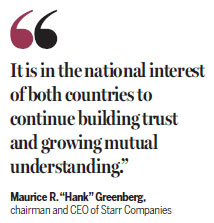
And as his business relationship with China has deepened, he has become an active philanthropist there.
Since its founding in 1955, the Starr Foundation, chaired by Greenberg, has made grants to various not-for-profit causes worldwide, including approximately $272 million to China-related activities, many of which benefit America as well.
"Not only have we helped students at schools, helped cultural issues, helped build hospitals," he said. "I believe we've helped bridge the differences between our cultures."
A good example was the recovery of China's missing relics - bronze window and door panels from a pavilion at the Summer Palace - in 1993 through the Starr Foundation.
Around 1900, during the Boxer Rebellion, 10 of the 20 original bronze window and door panels of the Baoyun Pavilion were removed and ended up at an auction house in Shanghai in 1910 where they were purchased by a French banking executive.
In 1992, Greenberg learned that the panels were in the hands of an antique dealer in Paris.
"In order to return them to their rightful place in China, we agreed to purchase the panels, and then paid for their shipment to the Chinese Bureau of State Relics in July 1993," Greenberg said.
Experts authenticated the panels by comparing them with the 10 still at the Palace Museum.
At a ceremony held in December 1993 to celebrate their return, Zhang Deqin, then director of the State Bureau of Cultural Relics, said that sending back the bronze windows "has opened a new window to link together peoples' feelings".
"We can see through this window a brand new field of friendly cooperation among people of different races, in different countries and under different social systems," Zhang said.
"It was a very emotional event in Beijing," Greenberg recalled. "People in China were moved. It was the first time something was given back to China."
Giving back, as Greenberg sees it, is starting to gain traction with the new generation of Chinese millionaires and billionaires, yet there is still a long way to go compared to the United States.
"You obviously want to share your success with your loved ones and give your children and grandchildren the kind of education and life they deserve," he said.
"But don't spoil them. Don't let them lose the drive to be self-starters with their own enthusiasm to succeed even more than you do. No legacy is greater than that."
Greenberg said he grew up on a farm in upstate New York and was very poor. "My father died when I was 6. My mother remarried about six years later. I used to milk cows twice a day - early in the morning after I get up as well as late in the afternoon," he recalled.
"Giving money back to the community has been part of the American societal fabric for a long time. I hope China catches up with that, just as they have with economic development," Greenberg said.
wanglinyan@chinadailyusa.com
(China Daily USA 08/12/2016 page11)







